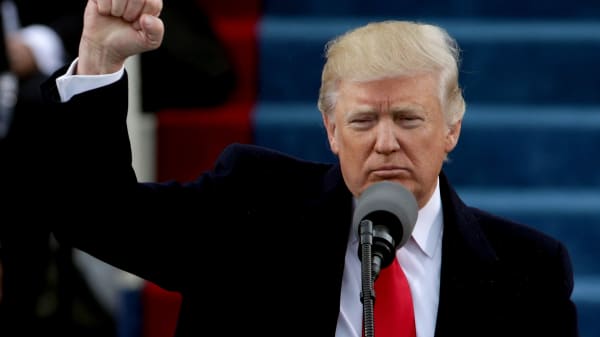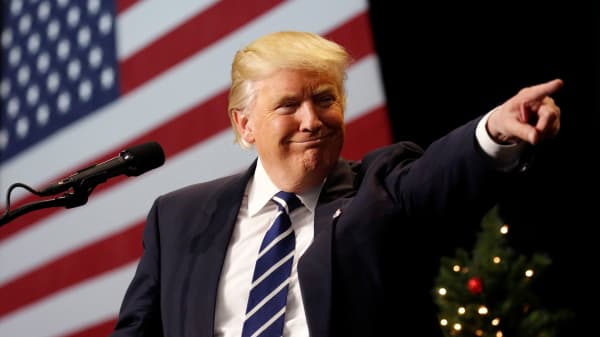President Donald Trump told reporters on Monday that a lawsuit accusing him of violating the Constitution by allowing his hotels and other businesses to accept payments from foreign governments was "without merit."
His remarks to reporters in the Oval Office coincided with a letter by Democratic lawmakers asking the General Services Administration what it was doing about Trump's hotel lease for the Old Post Office building.
They said the lease states that no elected official of the federal government can share in the agreement or benefit from it.
An ethics watchdog group Monday pulled no punches in a lawsuit filed in federal court against President Trump, claiming that the president's refusal to divest his sprawling network of business holdings put him in direct violation of the U.S. Constitution.
"This cannot be allowed," the complaint said.
At the heart of the complaint is a clause in the Constitution written to prevent foreign governments from exerting influence on the United States. Known as the Emoluments Clause, the section bans the president from accepting gifts or compensation from foreign governments.
With dozens of foreign holdings, any of which could benefit from Trump's new role as president, the complaint argues, the president's "business interests are creating countless conflicts of interest, as well as unprecedented influence by foreign governments, and have resulted and will further result in numerous violations" of the Constitution.
"As the Framers were aware, private financial interests can subtly sway even the most virtuous leaders," the complaint said.





